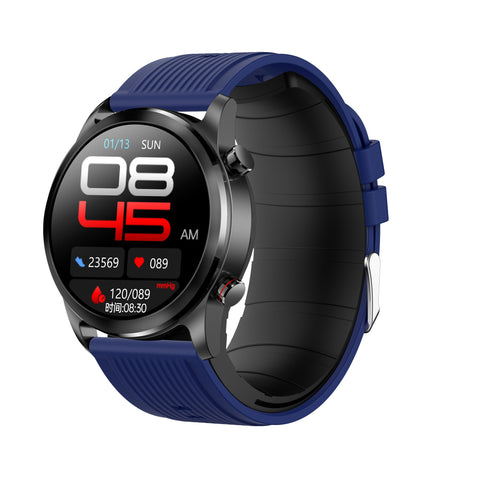Smart Watch Innovations in 2024: What You Need to Know About Stress Monitoring
In recent years, smartwatches have evolved from simple timekeeping devices to sophisticated health and wellness companions. Among their many capabilities, stress monitoring stands out as a pivotal feature that continues to advance with each new innovation cycle. As we delve into 2024, the landscape of stress monitoring in smartwatches has seen significant advancements, revolutionizing how individuals manage and understand their stress levels on a daily basis.
The Evolution of Stress Monitoring Technology
Early iterations of stress monitoring on smartwatches relied primarily on heart rate variability (HRV) measurements to gauge stress levels. This method, while effective to a degree, has been refined and augmented with newer technologies. In 2024, smartwatches integrate multi-sensor arrays that not only measure HRV with greater accuracy but also incorporate additional metrics such as skin temperature, electrodermal activity (EDA), and even blood oxygen levels. This comprehensive approach allows for a more nuanced understanding of stress responses, providing users with actionable insights tailored to their physiological reactions.
Real-Time Data and Personalized Insights
One of the most significant advancements in stress monitoring is the ability to provide real-time data and personalized insights. Modern smartwatches equipped with advanced AI algorithms can analyze continuous streams of biometric data to detect patterns indicative of stress. For instance, deviations in HRV coupled with increased skin conductivity might trigger alerts suggesting relaxation techniques or mindfulness exercises. Moreover, these devices can learn individual stress thresholds over time, offering increasingly accurate feedback and recommendations based on personalized data profiles.
Integration with Ecosystems and Applications
In 2024, the integration of stress monitoring into broader health ecosystems is a key trend. Smartwatches can seamlessly sync stress data with smartphone apps and cloud-based platforms, enabling users to track their stress levels over extended periods. This integration not only facilitates comprehensive health management but also allows for the correlation of stress data with other health metrics like sleep patterns, physical activity, and nutrition. Such holistic insights empower users to make informed lifestyle adjustments to mitigate stress and enhance overall well-being.

The Role of Biofeedback and Behavioral Interventions
Beyond data collection, smartwatches are increasingly incorporating biofeedback mechanisms and behavioral interventions to actively manage stress in real time. Biofeedback features utilize visual or haptic cues to guide users through relaxation exercises, breathing techniques, or mindfulness practices based on current stress levels. These interventions aim to empower individuals by providing immediate strategies to alleviate stress and promote mental resilience, thereby fostering long-term health benefits.
Privacy and Ethical Considerations
As smartwatches continue to advance in stress monitoring capabilities, privacy and ethical considerations remain paramount. Manufacturers are increasingly focused on ensuring secure data handling practices and transparent user consent mechanisms. Additionally, efforts to anonymize and aggregate data for research purposes while respecting user privacy preferences are critical to maintaining trust in these technologies.
Future Directions and Implications
Looking ahead, the future of stress monitoring in smartwatches promises even more sophisticated capabilities. Advancements in sensor technology, AI-driven analytics, and biometric understanding are poised to further refine stress assessment accuracy and broaden the scope of actionable insights. Moreover, ongoing research into the physiological markers of stress and their implications for overall health will likely shape the next generation of smartwatch innovations.
In conclusion, the evolution of stress monitoring in smartwatches represents a significant stride towards personalized health management. By harnessing advanced sensor technology, AI algorithms, and integrated ecosystems, these devices empower users to proactively manage stress, optimize well-being, and lead healthier lives in an increasingly interconnected digital age.
Stay tuned as we continue to explore the dynamic landscape of smartwatch innovations and their impact on health and wellness.









